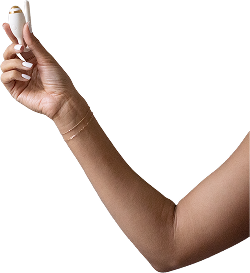For years, anti-müllerian hormone (AMH) levels have been regarded as a crucial indicator of a woman's fertility. However, recent research suggests that relying solely on AMH levels may not accurately predict likelihood of natural conception. Moreover, there are numerous lifestyle and environmental factors that play a significant role in enhancing fertility naturally, eliminating the need for immediate reliance on in vitro fertilization (IVF).
The Limited Predictive Power of AMH
AMH, a hormone produced by the granulosa cells of the follicles in the ovaries and serves as a marker of ovarian reserve– the number of eggs a woman has remaining. The AMH level is important for women undergoing in vitro fertilization (IVF), as it is helpful for determining the appropriate dosage of stimulation medications and for predictions about how many eggs can be retrieved during a cycle.
A low AMH may indicate diminished egg reserve, while a high AMH is more common among those with polycystic ovary syndrome (PCOS). However, studies have shown that AMH levels may not be a definitive predictor of a woman's fertility. A meta-analysis, published in the Frontiers of Endocrinology journal found that AMH is a poor predictive indicator of the ability for a woman to conceive naturally. Similarly, research suggests that low AMH values do not suggest reduced chance of pregnancy when trying to conceive naturally.
When AMH levels are within the normal range, many women assume this ensures they are adequately fertile. While a low AMH does not predict a person’s ability to conceive naturally, a normal AMH also cannot provide any assurance that a person will be able to conceive naturally. AMH values also do not provide insights into the egg quality, ovulation occurrence, or optimal timing for conception.
This research may alter the path forward for women who thought their AMH level determined the need for IVF. Instead of jumping into fertility treatments, many women are seeking more natural alternatives, such as lifestyle changes to address egg quality and overall fertility, instead of focusing on the AMH level.
Natural Approaches to Enhance Fertility
While natural fertility does tend to decline with age, there are several lifestyle and environmental changes that women can adopt to improve their overall reproductive health and increase the likelihood of conception. These include:
- Maintaining a Healthy Diet: A balanced and nutritious diet rich in vitamins, minerals, and antioxidants can positively impact fertility. Certain foods, such as leafy greens, whole grains, and omega-3 fatty acids, are known to support reproductive health.
- Regular Exercise: Engaging in moderate, regular physical activity can regulate hormonal balance, improve blood flow to the reproductive organs, and reduce stress – all factors that contribute to enhanced fertility.
- Stress Management: Chronic stress can adversely affect fertility by disrupting hormonal balance. Adopting stress management techniques such as meditation, yoga, and mindfulness can be beneficial for overall reproductive health.
- Adequate Sleep: Quality sleep is crucial for hormonal regulation and overall well-being. Women aiming to conceive should prioritize getting sufficient, restful sleep each night.
Maximizing the Fertile Window
While tracking ovulation through methods like ovulation predictor kits (OPKs) and basal body temperature (BBT) is commonly discussed, these methods fail to capture the full fertile window. kegg offers a better solution by monitoring changes in the cervical fluid, providing a complete view of the full fertile window that neither LH or BBT can provide.
kegg's innovative technology offers a more precise and personalized approach to fertility tracking, helping women identify the full fertile window. By understanding the complete fertile window, women can optimize the timing of intercourse, increasing their chances of conception naturally. Each cycle and egg matter and with kegg, users can ensure they are maximizing their chances every cycle.
Should I consider kegg if my AMH is low?
There have been many women with very low AMH levels who have been successful with kegg. A kegg user can gain useful insights into timing intercourse or insemination if they have ovulatory cycles. While a low AMH may indicate a low ovarian reserve, this does not predict an inability to conceive so long as they are still having ovulatory cycles.
Julia*, 37, had been trying to conceive for 2 years. At the 16 month mark, she sought help from her infertility specialist. Fertility testing revealed an AMH of .3, which was remarkably low for her age. She was told IVF would be the only way she could conceive. She underwent IVF and 3 eggs were retrieved, and while 2 fertilized, 1 arrested in initial stages of development. Julia was hopeful her only embryo would be her chance to conceive. Sadly, the transfer was not successful and she did not see that positive pregnancy test.
Julia decided to pursue kegg while taking a break from the IVF process. She shared “with my low AMH and age in mind, I really thought I would be needed to use the Money-Back Pregnancy Guarantee, but since it was risk-free, my husband and I decided to try kegg while we saved up money for another round of IVF. I had low expectations but figured there was no reason not to try. To our utter shock, we conceived on our 5th cycle using kegg; our very first positive pregnancy test in over 2 years. We welcomed our sweet baby girl this past fall, and are excited and more hopeful to use kegg to try to conceive our second baby this summer!
Relying solely on AMH levels to predict fertility can be misleading, as numerous factors contribute to a woman's ability to conceive. Embracing a holistic approach that includes lifestyle changes and utilizing advanced fertility tracking technologies, such as Kegg, empowers women to take control of their reproductive health. By debunking myths, embracing natural approaches, and leveraging innovative tools like kegg, women can enhance their fertility journey and maximize their chances of a successful pregnancy without immediately resorting to invasive interventions like IVF.
*Name changed and story shared with permission.
Citation: Lin C, Jing M, Zhu W, Tu X, Chen Q, Wang X, Zheng Y, Zhang R. The Value of Anti-Müllerian Hormone in the Prediction of Spontaneous Pregnancy: A Systematic Review and Meta-Analysis. Front Endocrinol (Lausanne). 2021 Oct 13;12:695157. doi: 10.3389/fendo.2021.695157. PMID: 34721287; PMCID: PMC854867



